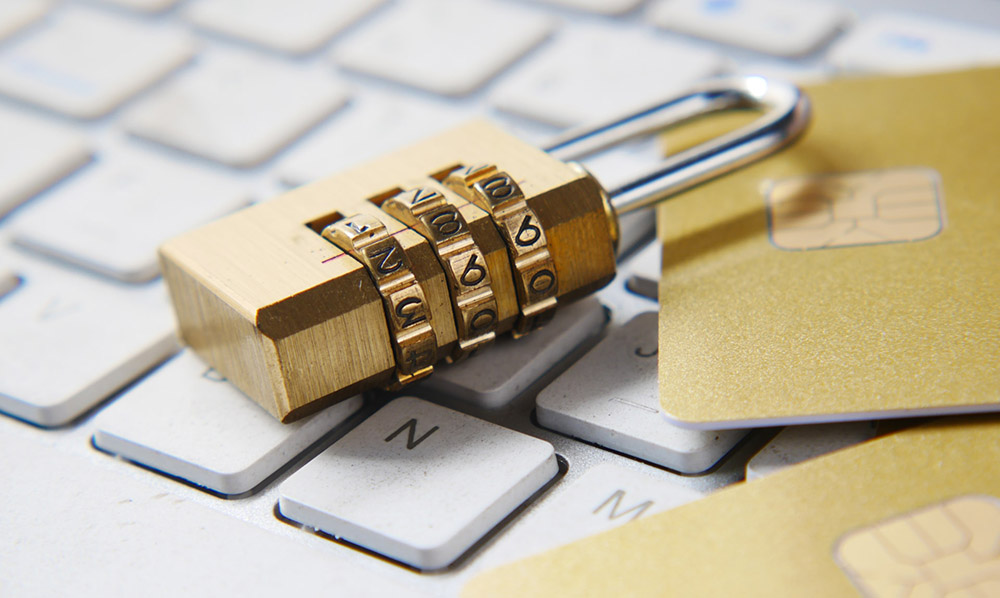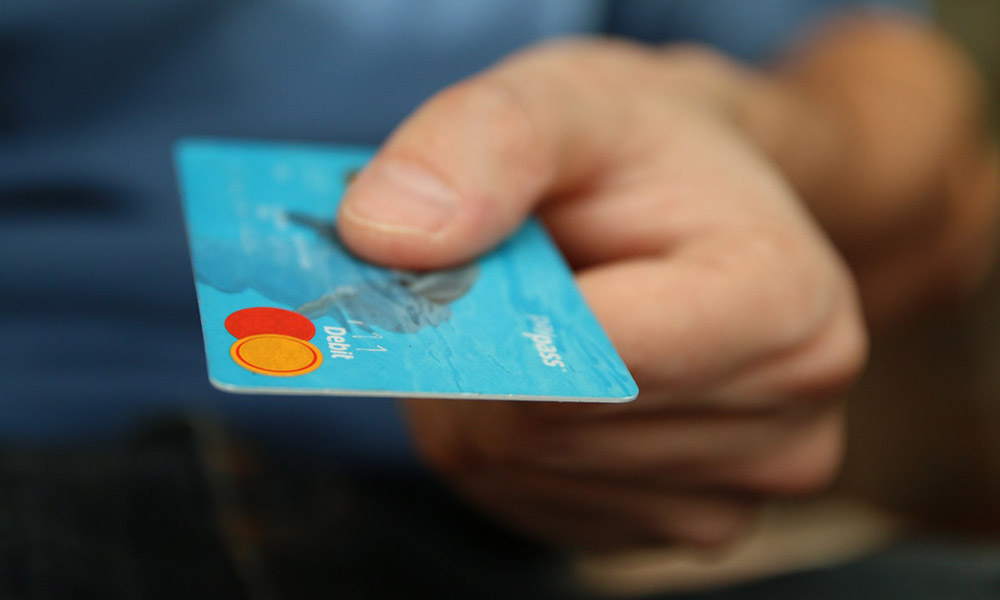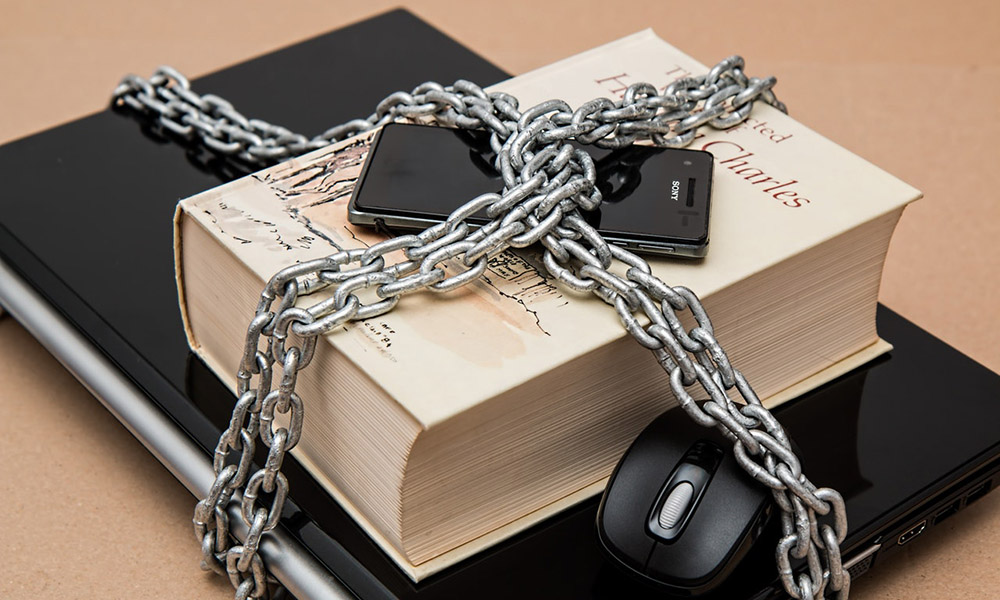Christmas is the most wonderful time of the year for treating loved ones with gifts. But as it is also the period when shoppers spend more money, it is also a time where scammers are in force.
Scammers are continuously learning new techniques and developing their tactics to con shoppers out of their hard earned cash, but the pandemic has accelerated the problem even further as it forced more people than ever to shop online last year.
So how do shoppers keep their cash protected over Christmas? Holly Andrews, managing director at KIS Finance and personal finance expert collaborated with Checklist to make this list of 10 great expert tips to keep your money safe.
1. Look for the padlock symbol

Before you purchase anything online, make sure that you’re using a safe and secure website.
You can do this by checking that the web address starts with HTTPS and that there is a padlock symbol in the address bar. This means that the website is secure and any information you enter, i.e. your personal information and bank details, will be sent to the server in an encrypted format. This means that it can’t be read by anyone who tries to intercept it.
This also implies that the retailer is taking its customers’ safety seriously so it’s a good sign that they’re a genuine and honest company.
Another thing you can check for is the company’s contact details, office address, and terms of service page. Scammers who set up fake retail websites often won’t have this information as they’re not a real company and they don’t want to be contacted or traced.
2. Stick with reputable sites for big ticket items

If you’re planning to buy big tickets online, such as an iPhone or a new TV, then it’s a good idea to stick to big, well-known retailers. This is because expensive tech items are very commonly used to target shoppers as scammers can make a lot more money using these products.
They will often steal images from genuine retail websites and create adverts that promote huge discounts. For very sought after products, these adverts can be very tempting for those who are looking to purchase gifts.
Sticking to well-known reputable retailers will ensure that you’re getting a genuine product, even if it means paying a little extra. Remember that if a deal looks too good to be true, then it probably is.
3. Never pay via bank transfer

When you pay for something online, only ever use a debit card, credit card, or PayPal. If someone asks you to pay via bank transfer then this is a huge red flag. You will have little or no protection if you pay for something via bank transfer so scammers use this to their advantage. This can happen particularly with illegitimate sellers on sites like eBay.
Credit cards offer the best protection as you will be protected under Section 75 of the Consumer Credit Act for purchases of between £100 and £30,000. This means that your credit card provider can be held liable if there is a problem with a purchase and the supplier/retailer/seller won’t solve the issue.
With PayPal, you will be protected by their buyer protection scheme which means that they will reimburse you if your eligible purchase doesn’t arrive or doesn’t match the seller’s description.
4. Check genuine review sites

If you’re purchasing from a small retailer that you haven’t heard of or used before, make sure that you check for reviews first. You should look for reviews on well-known websites like Trust Pilot as these will feature genuine reviews from genuine customers.
Don’t just trust reviews on the website itself as these could have been written by the website creators. This definitely isn’t always the case as a lot of smaller, genuine retailers will feature real reviews on their websites, but you should always look for reviews elsewhere too.
5. Don’t feel pressured into purchasing now

If you have any doubts about a websites credibility, don’t jump the gun and purchase because the deal is short-lived. ‘This week only’ deals will still be available after an hours Googling or asking friends.
Of course, limited-time offers are extremely common nowadays, but it’s still worth taking a breath and double-checking the credibility of the seller.
6. How did they get your information?

If you get emails or texts from websites offering amazing deals on products, it’s worth working out exactly how they got a hold of your details to contact you.
You shouldn’t be receiving marketing material from websites and companies you haven’t given your information to. If you are, it could be a sign that the website is less-than-legitimate and has sent messages to every email address or phone number they could think of.
7. Set strong passwords

This seems like a simple one, but you’d be surprised how often people forget it.
Make sure your password doesn’t contain words mentioned elsewhere in your login. Also try not to include words or details about yourself that someone could find out about you online, for example the names of your children or favourite football team.
8. Research the company if you haven’t heard of them

If you’re not familiar with the website, it’s a good idea to look up the company online to ensure they’re a legitimate retailer.
If they have very few background details, or were only founded a few weeks ago, the company may be a scam.
9. Check the website’s address

I’m sure you’ve heard of amazon.com, but what about amason.com?
Some scams use slight spelling mistakes to their advantage, creating website addresses one letter off a legitimate and well-known site to direct you to their illegitimate website.
Make sure you’re on the correct website before entering payment information or clicking on anything.
10. Be wary of unfamiliar sites

Genuine retailers do use online adverts, but so do scammers and it can be very difficult to tell which ones are real and which are fake.
If the retailer is offering a discount code and urging you to click on the ad, then just take a screenshot to look at later. If the discount code is genuine then you will be able to enter it manually at checkout.
This article was created in collaboration with KIS Finance.
To see your company in any upcoming features we are arranging please email laura@hurstmediacompany.co.uk or editorial@hurstmediacompany.co.uk







